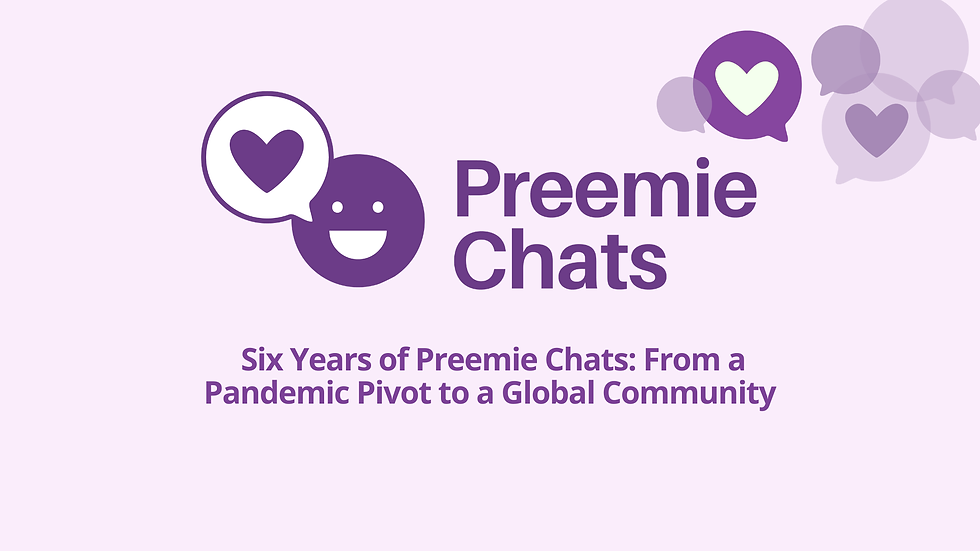Understanding high blood pressure in NICU
- barbara4241
- Oct 29, 2025
- 3 min read
By Dr. Namrata Todurkar
Understanding high blood pressure in NICU
High blood pressure (BP) in newborn babies, also called NEONATAL HYPERTENSION is an issue found especially in infants who are admitted to the NICU. While it is relatively rare, occurring in about 0.2-3% of NICU infants, it is important for parents to understand that this condition requires careful monitoring and management.
What is Neonatal Hypertension?
Neonatal Hypertension is defined as blood pressure readings that are higher than the normal range for a baby’s age, weight, and sex; confirmed on at least three occasions. In newborns - especially those born prematurely - blood pressure naturally increases as they grow, but some babies experience abnormally high readings due to underlying health problems or NICU interventions.
How is it detected and diagnosed?
The “gold standard” method of measuring BP is directly from a catheter in the artery. However, more often, NICU staff use a cuff (like in adults) with a machine that estimates blood pressure. While measuring, the cuff has to be exactly the right size and the infant should be quiet or asleep to get the most accurate results. Most infants do not have obvious symptoms; therefore hypertension is usually picked up during regular NICU checks. If there are signs, they can be easily confused with other newborn issues - such as feeding problems, tiredness, or irritability. Usually, the treating team performs certain blood and urine tests along with imaging to look at the kidneys, heart and blood vessels.
What are the causes of neonatal hypertension?
Problems with the kidneys or blood vessels supplying blood to kidneys
Certain heart conditions, like coarctation of the aorta
Chronic lung disease or bronchopulmonary dysplasia
After certain procedures, especially with umbilical lines (which cause blood clots)
Hormonal problems (like the adrenal glands or thyroid)
Tumors that can affect the blood vessels
Medicines and fluid overload
In many cases, there may be more than one contributing cause. Often, the kidneys play a big role because they help control blood pressure by adjusting fluid and salt levels.
How to treat Neonatal Hypertension?
Treatment starts by making sure the blood pressure readings are accurate and then figuring out if there is a reversible cause, such as pain, excess fluids or certain medications. Severe hypertension needs urgent control with intravenous medicines. Milder cases may be handled with oral medicines and close monitoring. Medicines can include drugs that relax blood vessels, remove extra fluid from the body, or reduce certain mediators in the blood that raise blood pressure. Surgical treatment would be necessary if there is a fixable physical cause (like a tight blood vessel, mass, or tumor)
What should parents expect?
The good news is that most babies outgrow neonatal hypertension - especially when the underlying cause is treated. Many need medication for a short time. A few infants may have ongoing hypertension and need longer-term treatment. Ongoing follow-up is important, as some children may face a higher risk of developing high blood pressure or kidney problems later in life. With attentive medical care, the outlook for infants diagnosed with neonatal hypertension is good.
In summary: Neonatal hypertension is an uncommon but serious condition best managed with early detection, accurate diagnosis, and individualized treatment. Parents can take comfort in knowing that most babies improve with proper care, and regular follow-up ensures any long-term concerns are addressed quickly.
Ref:
1. Janis M. Dionne, Joseph T. Flynn; Hypertension in the Neonate. Neoreviews July 2012; 13 (7): e401–e409. https://doi.org/10.1542/neo.13-7-e401
2. Kirtida Mistry, Charu Gupta; Neonatal Hypertension. Neoreviews June 2017; 18 (6): e357–e371. https://doi.org/10.1542/neo.18-6-e357
3. Sloan P, Attaarian S, Moore A, Balzer D, Davis K. Case 2: refractory hypertension in a neonate. Neoreviews August 2015; 16 (8): e493–e496. https://doi.org/10.1542/neo.16-8-e493
4. Starr MC, Flynn JT. Neonatal hypertension: cases, causes, and clinical approach. Pediatr Nephrol. 2019 May;34(5):787-799. doi: 10.1007/s00467-018-3977-4. Epub 2018 May 28. Erratum in: Pediatr Nephrol 2019 Sep;34(9):1637. doi: 10.1007/s00467-019-04273-z.

Dr. Namrata Todurkar, MBBS, MD (Pediatrics), DNB (Pediatrics). Fellowship in Neonatology from National Neonatology Forum India. Fellow in Neonatal-Perinatal Medicine at the University of British Columbia. Areas of interest: Neonatal nutrition, Fluid and Electrolyte Management, Inborn Errors, Neurodevelopmental follow-up of preterm infants. Dr. Todurkar is a volunteer blogger at CPBF.




Comments